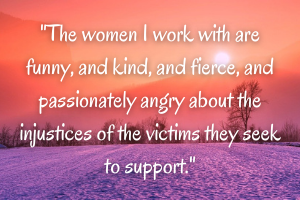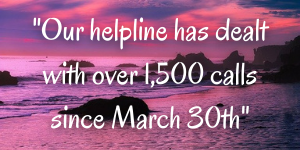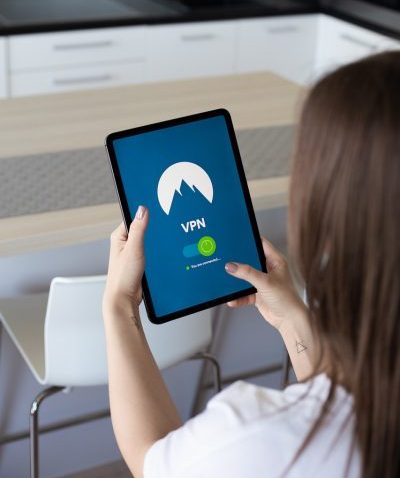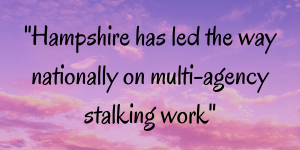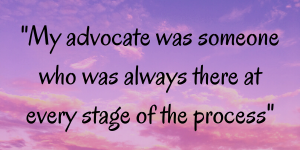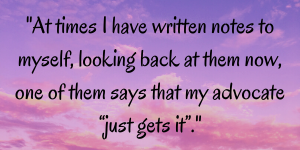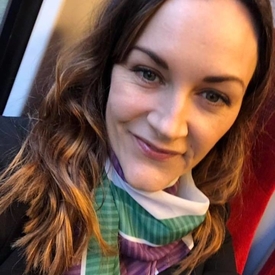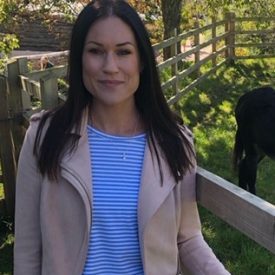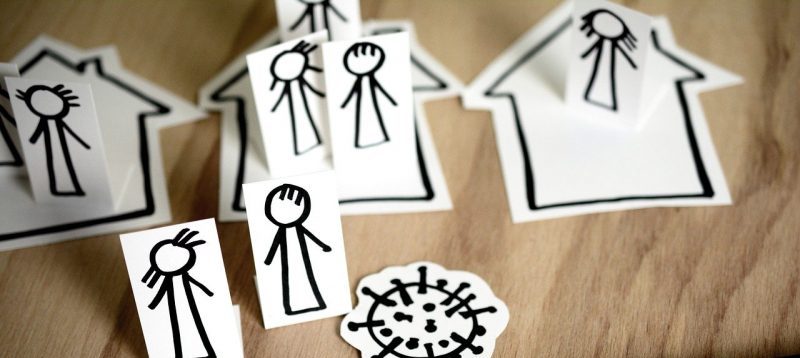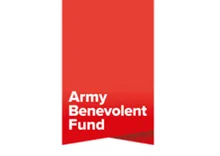Zoe representing Aurora New Dawn
Below you can find the 3 part interview with Zoe on Express FM. Zoe discuss such issues as stalking, the differences between domestic abuse and domestic violence, coercive control, and sexual violence.
Aurora New Dawn is a non-judgmental charity organisation which offers victim and survivors of domestic abuse, sexual violence and stalking support, all designed by women. At #TeamAurora, we believe you.
Listen to the Express FM Interview:
Want to see the transcripts? Click below:
Transcript 1: Express FM Interview with Aurora Part 1
Host: A subject which we’ve covered on this show many a time over the years is an organisation called Aurora New Dawn. Zoe joins us as our profile guest tonight. Zoe, good evening to you.
Zoe: Hello.
Host: Alright?
Zoe: I’m good thank you.
Host: We must give a mention to Lyn, Lyn is with us tonight.
Zoe: She is.
Host: Watching.
Zoe: Sat on the sofa.
Host: Watching and waving. She’s too scared to come on the air.
Zoe: She is.
Host: But… she’s just put her feet up on the soda.
Zoe: She’s fine, she’s comfortable.
Host: Yeah, yeah, yeah, she’s well-trained is she?
Zoe: I’ve got her well-trained, absolutely, don’t you worry.
Host: Great, thanks for coming in, it’s good to see you both.
Zoe: Thanks for having me.
Host: Thanks for coming in and talking to us. Tell us a little more about the organisation first of all, ‘cos there’s bound to be people out there who are not too sure what you do.
Zoe: Yeah, absolutely, so we are ‘Aurora New Dawn’ or ‘Aurora’ for short, it’s probably the easiest way to say it, and we are a charity based in Portsmouth but we work across Hampshire and deliver a number of different services, we also do a little bit in West Sussex. And we work with victims of domestic abuse, sexual violence, and stalking. So, within that we deliver a number of different services and work in a number of different ways, but we are a victim focused organisation, we’re a registered charity and we’ve been going since 2011.
Host: Ok, so fairly new.
Zoe: Yeah.
Host: Yeah, but it’s one of those subjects, isn’t it, I mean that I mean stalking for one and obviously the domestic abuse has been going on, but the stalking has really sort of over the last few years been really highlighted and well in a positive way in some respects.
Zoe: Absolutely, yes so um, stalking has obviously been around for forever, but in 2012 was when stalking became a criminal offense in the UK.
Host: Is it fair to say it was probably more taken seriously?
Zoe: I think so, yeah, and I think there’s been a lot of work. There was a lot of work in the run-up to that legislation and since it there’s been more work that’s happened. But I think often people think of stalking as something that happens to celebrities. We see a lot of that stuff in popular media in films it’s been quite romanticized in terms of a behaviour, but in actual fact stalking is really quite prevalent. It happens to various different people, it happens in various different situations, so people might be stalked by an ex-partner, they could be stalked by an acquaintance by a stranger in some cases, and what I think films haven’t done particularly well is, is kind of portray really how frightening that is for the victims. So the legislation was really important, because we now have a criminal offense of stalking in its own right. Previously we had harassment legislation, and since then there’s been a lot of work done to really raise the profile and we certainly see a number of cases coming through the service so it’s a really important part of the service we deliver.
Host: You know we look at TV programmes we look at films you just sort of mentioned that there and social media as well. Do you think perhaps, you know, sometimes TV programmes and that sort of respect don’t actually help? They can somewhat make matters worse in some ways.
Zoe: I think sometimes they can, I think sometimes stalking is trivialized a little bit and it’s seen as kind of this idea of unrequited love and if you just keep pursuing people, isn’t that romantic? And eventually you know they’ll come to love you. And really as I say stalking takes a lot of different forms. So we know a lot of people are stalked by ex-partners it’s kind of an extension of domestic abuse that they’ve experienced previously in the relationship. And it really is terrifying you know? Stalking is incredibly psychologically damaging. It tends to go on for a long time, victims will experience really high levels of fear associated with that, so it’s really important that we do take it seriously and that we understand it. Because often stalking is a number of what seem like very small incidences but when you build that into a pattern that happens over a long period of time that really does take over somebody’s life.
Host: Yes, scary isn’t it? Because I think the song from the police…
Zoe: It is absolutely.
Host: Yeah is one, it really makes you stand up and think, yeah quite a classic song but…
Zoe: It’s quite terrifying.
Host: Because if you listen to the lyrics, it gives an idea of how serious the offense is.
Zoe: Absolutely and there is that feeling for victims, of really not knowing where a threat is coming from. You know? Depending on who the perpetrator is, and what they’re experiencing, where that person’s going to turn up, if they’re going to turn up. Because not all stalking involves ‘approach behaviors’ as we would call them. So a lot of that behaviour will happen online now. Obviously, with you know, we live our lives online don’t we? The whole cyber element. It would be unusual to see a case of stalking that doesn’t have a ‘cyber-element’ to it. So there’s lots of different access points. And what stalkers will do is they will use those access points, so they will look at the ways in, so for victims there’s really a sense of just being on high alert all of the time, and being worried and frightened all of the time. So, it really is a damaging thing to experience.
Host: Certainly on the Internet, because obviously, you know it’s free access to most people these days, and I guess with the stalking element it has sort of increased things a little bit.
Zoe: Yeah it’s made everybody more accessible hasn’t it? And I think in, you know it’s really important to flag up that’s a good thing, you know? We can stay in touch with people, we can stay in touch with our support networks, and that we’ve got access to so much more information and support online. But with that comes accessibility, and often we don’t think about what is out there on the Internet about ourselves, and our privacy settings and you know all the recent coverage of Facebook and all that kind of stuff. It’s really important for people just to be aware of their online presence and their online security. We would never say to people, you know to come off that stuff, and I wouldn’t want people to feel worried about that. But just to be aware of what those access points might be is sensible.
Host: And what about stalking here in this area, in Portsmouth? Is that a concern for your organisation?
Zoe: Well, we’re actually, Hampshire as a whole is really fortunate and we’ve been flagged up several times nationally as a best practice area in relation to the work we do around stalking. Because in Hampshire, what we do is we have a very strong multi-agency partnership in terms of the way we respond to stalking. So there is a Hampshire stalking clinic. There is a process by which cases of stalking are looked at by a partnership of the police the Crown Prosecution Service mental health professionals and our victim advocate are stalking team, to make sure that victims are supported properly, to make sure the investigations are effective, to make sure that we are tackling stalkers. Because that’s important you know, there are individuals that are fixated and obsessed, so if we don’t do something about their behaviour, it is likely they will either start that again or they will find somebody else to target. So we’ve been flagged up several times nationally as a best practice response. And in that way, we’re probably quite good at identifying it, I think so, it’s not necessarily a particular problem for the area, but services like ours will see a lot of cases because we’re, you know, we’re attuned to it really, yeah.
Host: This may sound like a daft question, but what are the sort of, the early warning signs of stalking? Sometimes you might not be aware this is actually happening.
Zoe: No and that can be really tricky I think.
Host: It’s how you define it, isn’t it?
Zoe: It’s how you define it. Stalking is essentially about fixation and obsession. So one of my favorite ways of remembering it is to think of the word F.O.U.R: so you are Fixated, Obsessed, Unwanted, and Repeated. That’s the type of thing that we’re looking around stalking behaviour, so it is about that fixation, it doesn’t tend to stop of its own accord. There would need to be some intervention, there really, if people are worried about any contact that they’re receiving, you know whether that be online/offline, if they feel uncomfortable. Stalking is about the imposition of a relationship on someone that doesn’t want it, whether that’s because there was a previous relationship and that’s ended, but that individual is trying to kind of regain that relationship, or whether it’s someone that they’ve not met before. If they feel uncomfortable, what I’d always say is: get in touch with somebody about it. You know, certainly our service, we’re happy to take calls, if people are concerned, we’re always happy to advise around kind of online safety, around the reporting process, around the options available. And keeping a diary can be a really good way of starting that process off as well, so kind of logging instances down, however trivial they may seem. You know, logging them down and logging down the details of that and how it made the individual feel can really help if there is kind of an investigation going forward. But always talk to someone if you’re concerned.
Host: It isn’t just a female thing?
Zoe: No, no, absolutely not. Predominately victims of stalking are female – yes, and predominantly perpetrators are male.
Host: That’s why I asked the question.
Zoe: But it’s absolutely not exclusively female victims that we deal with, so it’s really important that we kind of put that out there and it can happen to anyone. So often professionals can be stalked by, you know, clients or people that they’ve worked with, their patients you know, as I said it can be complete strangers sometimes. It can be just an individual that someone’s had the misfortune, if you like, to come into brief contact with. Anything that makes that person feel uncomfortable if they’re starting to feel like it is repeating, it is slightly obsessive, get in touch with somebody, talk it through, take some advice.
Host: Know the warning signs.
Zoe: Know the warning signs, and know that it’s not ok. You know all this stuff in popular culture about, oh well, it will probably stop or maybe I’m being, you know… victims have a tendency to feel like maybe they’re overreacting a little bit, or they might have friends and family around them, they’re saying “oh it’s probably nothing” or “he probably just likes you” that kind of stuff. If it’s making you feel uncomfortable, then it’s absolutely right that you get some support around it.
Host: Okay we’ll pause there for a bit of music now, I’m not sure which one you want first.
Zoe: Can we have Taylor Swift please?
Host: We can do that, we certain can do that, I guess there’s been a meeting here somewhere because you’ve asked the office for this haven’t you?
Zoe: Well, both song choices are out to the office, but I take credit for the Taylor Swift one because I am a fan of Taylor Swift and I’m not ashamed of it so it’s just a track I like, so ‘Shake it off shake it off’.
[Music]
Transcript 2: Express FM Interview with Aurora Part 2
Host: We talked about stalking and I’m going to give you all the information and all the necessary numbers, and all that kind of thing a little bit later on in the program. So stay tuned for that. So, we were talking about stalking Zoe. Obviously, domestic abuse is obviously a big thing too isn’t it? And over recent years, I guess, it has really sort of like stalking [entered] more into the public fray as it were.
Zoe: We’ve really moved forward, I mean, I’ve been doing this now for about 15 years and even in that time there have been real significant developments in terms of the way we respond to domestic abuse, the way we work together as agencies around domestic abuse. But it’s still, really, still incredibly prevalent and I think a lot of the time people don’t realise quite how prevalent it is. So we are still in a situation in the UK where 1-in 4 women at some point in time in their lives will experience domestic abuse, around one in 6 men, and 2 women a week in the UK are killed by a current or former partner so that’s about 1 every 3 days.
Host: Scary isn’t it? It’s a stat.
Zoe: It is a scary stat. And it’s been that way for a significant amount of time so it’s not increasing, but it’s not decreasing either. So really domestic abuse is something that we need to be aware of and able to respond to in the best possible way.
Host: When we say ‘domestic abuse’ this can be all sorts, can’t it?
Zoe: Yes, which is why we use the term ‘domestic abuse’ now. As opposed to ‘domestic violence’ because ‘domestic violence’ obviously has connotations that there is physical violence and there has to be physical violence for that to exist. And domestic abuse is actually much wider than that. So we know that there is physical violence a lot in abusive relationships and that physical violence can range from pushing, shoving, burning, kicking, pinching, to strangulation; attempts to block the airway and ultimately murder as we have already talked about. But there are a number of other behaviours that victims will often experience, some will not experience violence at all, we talk now a lot about coercive control which, again, is another new criminal offence, newish, since 2015. So coercive and controlling behaviour in an intimate relationship is now against the law in this country. And that doesn’t require any violence, that’s about someone’s every move being policed and watched and their life being controlled so that there is a significant impact on their day-to-day activities. Financial abuse is a real factor for a lot of our clients, the control around money.
Host (disapproving): Say yeah, it’s amazing isn’t it, to control someone’s finances.
Zoe: Yeah, a lot of our clients will report that they are given pocket money, that their money is restricted, that they are made to account for receipts.
Host: They’re almost treated like a child.
Zoe: Absolutely and it’s just an extension of that control. What happens in domestic abuse, because it is about power and control, is that every behaviour is designed to keep that person under the control of the perpetrator and subservient to them and fearful of the consequences of not following the rules. So the rules are set by one person [and] one person only, they will change based on what that one person wants to do. And it can be absolutely exhausting to try and kind of keep up with that. And then you’ve got the fear of violence, the threat of violence, and sometimes the use of violence that kind of underpins all of that. Financial abuse, verbal abuse, name-calling, and sexual violence is a massive factor for our clients as well. So some of them will experience that, so there’s a lot of different behaviours caught up in it and a lot of stuff to unpick, so not just physical violence and there doesn’t have to be physical violence for a relationship to be abusive.
Host: There’s so many strands to it isn’t there?
Zoe: Yeah, it’s a real complex issue.
Host: Again, yeah, we’ll give the necessary numbers and things like that a little bit later on in the program, how people can get in touch. The message though: if you are in that situation is too obviously seek help at whatever sort of level
Zoe: Absolutely, come and talk to a specialist service. And I think the important thing to say about that is that services like ours, and there are you know services up and down the country, depending on where people live, will not force somebody to take a particular course of action. So it’s not necessarily, you know, they don’t necessarily have to go to the police, they don’t have to report if they don’t want to. What we’re there to do is to listen, to talk to that client about what’s going on and to give them a number of options that are available to them and support them in accessing those options. Ultimately, what we want to do is make them safe, we want to have a little look at the risks in those relationships and we want to be able to give them the right options. But the first step is to reach out and to talk to somebody, and to tell somebody what’s going on which is really difficult, really hard.
Host: I imagine it is because it is like ‘is that person going to believe me’?
Zoe: Absolutely, and that’s the number one thing I think that clients will worry about, the victims will worry about, when they talk to services like ours, is, you know, am I going mad? Am I making a big thing out of this? Because part of the psychological abuse that they’ve often experienced is that what they’re experiencing has been minimized, or the perpetrator will deny their behaviour, or they’ll say it’s not as bad as you think it is, or this is normal. So they really start to question what’s going on for them and in some cases question their own sanity and own mental health.
Host: Put me downs?
Zoe: Absolutely and their self-esteem is on the floor, and their confidence is on the floor, they’re frightened a lot of the time. You know there’s a real fear around domestic abuse, and a real fear of the consequences of, you know, something huge like leaving that relationship. So come and talk to a service like ours, it is non-judgmental we’re not going to be prescriptive about what people do. Even if it’s just to get the options and have a think about it. You know, that’s what services are there for, and we recognize it can be scary, we’re there to believe people were there to listen and so we’d encourage people to get in touch.
Host: Zoe, you said you’ve been here, or not here, in the organization for about 15 years.
Zoe: I’ve been with Aurora since it started in 2011. And prior to that I was working in the domestic abuse sector, so I was working for the local authority.
Host: Okay, so you’ve seen a few changes in that sort of short space of time really.
Zoe: Yes, I have.
Host: Is it better?
Zoe: I think most of it’s for the better. I think what we have seen is huge reductions in funding, which is not ideal, over the last few years. And that’s a challenging environment to work in when you’re trying to deliver services and we’re trying to make as many people safe as possible. But in terms of positive changes, yes there are a number. We’ve talked about the legislation, and you know those things are really important. I think for me one of the biggest changes has been the way that we communicate with organizations like the police and the way that we work together and how open the police are as an organization.
Host: Has that broken down barriers?
Zoe: Absolutely, I mean when I first came into the sector we didn’t really talk to the police very much. You know, they did their job and we did ours. And that’s really changed. I mean we run a very successful partnership project now with Hampshire Constabulary. And DVA cars, which Lyn leads on, which is a project whereby we send advocates out with the police on crisis response to 999 calls on a Friday and Saturday night across the county.
Host: Is that the peak?
Zoe: Yeah, it tends to be. The advocates will also work during the week. So they will also do follow-up visits with the police, and safeguarding visits. But we have learnt an awful lot from them, I hope they have learnt an awful lot from us as well, from having advocates out with them. And that’s a really good example of how a charity and a statutory organisation are working really really closely together. Primarily, because it’s the best thing for victims. So they get an independent advocate when they’re calling the police, to offer a bit of support, specialist knowledge, and information. And the police can do their job around the investigation and the policey bit. And it works really really well. And what it helps to do, is for victims to feel more comfortable to engage with agencies in the long term, because they’ve met with somebody at that point of crisis which is really important.
Host: People perhaps listening tonight want to get in touch. Will want to get involved, because, I mean, like any organisation, you’re a charity too, you know? That’s the thing about all this. And you said, you know, you hinted, earlier that funding has been cut, and I’ve spoken to many organisations over the years.
Zoe: It’s a challenging climate.
Host: Yeah, in a similar situation, chasing the same amount of money, the same pot of money, it does get difficult. So all the fundraising, do you go out on the streets and shake a tin like the old days?
Zoe: Yeah, so we are a big fan of a crazy fundraiser at Aurora. So we have done various things in the past, we’ve done sponsored fire walks, we have done a sea swim at the beginning of March in the freezing cold Solent. We have done a sober karaoke for sponsorship. So we do a lot of fundraising, so if people are interested in supporting that or getting involved. And we also have people that will go out and do things like the great south run for us. One of the team is about to do the three peaks challenge, Cerise is about to do that for Aurora.
Host: Good luck Cerise!
Zoe: Good luck Cerise! So [if] people want to get involved, absolutely get in touch with us. We are also on Facebook as Aurora New Dawn and we are on Twitter at Aurora New Dawn. All of the details of all any fundraising that we do is up there and we welcome anybody that wants to support us in any way. If people want to get in touch with us about support and about our services, you can find our website, the contact details are on there. You can email us, you can give us a call, just reach out to us in any way that you feel comfortable.
Host: It’s a tough area too, I would imagine, I would imagine the demographics are sort of completely mixed, very diverse.
Zoe: Yeah, it is very diverse and our clients are very diverse. So, you know, with most of our services, we will work with clients ages 16 and up, we have clients that are well over 60, a broad spectrum of clients, [from] different backgrounds. You know, domestic abuse doesn’t discriminate, you know, it cuts across all kinds of cultural barriers and all of that kind of stuff. So it is really broad, but what I think we’re really good at doing is treating each client as an individual, and sitting down with them and finding out what it is that they want to do, and what it is that they need, and working with them around that.
Host: Yeah Zoe we’re going to play a bit of music, a bit of ‘Lizo’.
Zoe: Yes thank you.
Host: ‘Juice’.
Zoe: ‘Juice’, this was the team choice, this was over to the team, so thank you to the team.
Zoe: This is for the Aurora Team.
Transcript 3: Express FM Interview with Aurora Part 3
Host: To recap Zoe again, if people want to get in touch, or particularly feel vulnerable I think as well, you know, that the stalking issue of course or whatever domestic abuse situation they find themselves in.
Zoe: There are a number of ways people can get in touch with us, the contact details are on the website (click here). They can call us on 023 92 479254 or drop us an e-mail at info@aurorand.org.uk so Aurora New Dawn and as I say they can go to the website if they haven’t had a chance to write those details down. And get in touch if for some reason we’re not the right local service, we will signpost on. We will make sure we get you to the right place. If you are concerned, then please do get in touch with us. Our Facebook page is also open for messages if people feel more comfortable doing that and our DMs are open on Twitter.
Host: Look at that, all sorts of ways to get in touch
